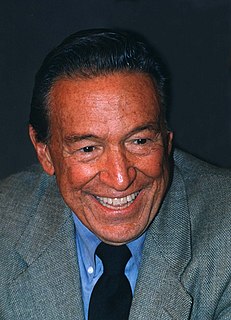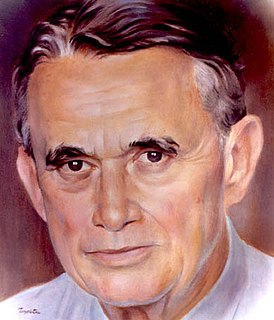A Quote by Mike Wallace
I even asked Eleanor Roosevelt difficult questions and she loved it.
Related Quotes
Eleanor Roosevelt loved to write. She was a wonderful child writer. I mean, she wrote beautiful essays and stories as a child. And Marie Souvestre really appreciated Eleanor Roosevelt's talents and encouraged her talents. Also, she spoke perfect French. She grew up speaking French. She's now at a french-speaking school where, you know, girls are coming from all over the world. Not everybody speaks French.
On international relations, Eleanor Roosevelt really takes a great shocking leadership position on the World Court. In fact, it amuses me. The very first entry in her FBI file begins in 1924, when Eleanor Roosevelt supports American's entrance into the World Court. And the World Court comes up again and again - '33, '35. In 1935, Eleanor Roosevelt goes on the air; she writes columns; she broadcast three, four times to say the US must join the World Court.
Well, in Washington, this is a very hard time for Eleanor and Franklin. This is when Lucy Mercer first appears. And Lucy Mercer is Eleanor Roosevelt's own secretary. Very beautiful young woman, not unlike Eleanor Roosevelt: tall, blonde, thick haired. And FDR is having an affair with her, which Eleanor Roosevelt finds out when FDR returns from Europe in 1918 with the famous flu of 1918.
Eleanor Roosevelt's very helpful to a lot of children who cannot speak French, who do not write well. And Marie Souvestre is fierce. She tears up students' papers that are not, you know, perfect. And Eleanor Roosevelt goes around, again, being incredibly helpful to children in need, children in trouble. And her best friends are the naughtiest girls who are in trouble. And she is a leader. And she is encouraged to be a leader. And everybody falls in love with her. She's a star.
In one way, it is this sense of order and also love that, I think, really saved Eleanor Roosevelt's life. And in her own writing, she's very warm about her grandmother, even though, if you look at contemporary accounts, they're accounts of horror at the Dickensian scene that Tivoli represents: bleak and drear and dark and unhappy. But Eleanor Roosevelt in her own writings is not very unhappy about Tivoli.
I think FDR was very dashing and charming and debonair, and probably reminded her of her father. A great bon-vivant. He loved to party. He loved to sing. He loved to have fun. And he wrote beautiful letters, just as her father did, which - alas and alack - Eleanor Roosevelt destroyed. But she refers to his beautiful letters. And she was charmed by him.
It's interesting to me that really one of the first things she [Eleanor Roosevelt]did as First Lady was to collect her father's letters and publish a book called The Letters of My Father, essentially, hunting big game, The Letters of Elliott Roosevelt. And it really was an act of redemption, really one of her first acts of redemption as she entered the White House. She was going to redeem her father's honor. And publishing his letters, reconnecting with her childhood really fortified her to go on into the difficult White House years.
Well, when Eleanor Roosevelt's mother dies, she goes to live with her Grandmother Hall. And her Grandmother Hall is in mourning. She's in widow's weeds. She's in her 50s, but appears very old. And she's exhausted from raising rather out-of-control children. Her favorite daughter, Anna, has died (Eleanor's mother), and she has living at home two other sons, Vallie and Eddie. And they are incredible sportsmen, incredible drinkers, out-of-control alcoholics.
I mean, if you pause over what it means at the age of 76 that Eleanor Roosevelt wrote, the happiest single day of her life was the day she made the first team at field hockey. Field hockey is a team sport. Field hockey is a knockabout - I mean, picture Allenswood, the swamps of north London. It's a messy sport. So she really enjoyed playing this rough-and-tumble sport in the mud of Allenswood, a team sport. And she was very competitive. And she loved being competitive, and she loved to win. And that, I think, was all of the things that Allenswood enabled.
Her mother died at the age of 29, essentially turning her face to the wall and deciding to die. And so we can only imagine the agony she felt. And Eleanor Roosevelt really wanted to make her mother happier, and - and to make her live, you know, make her want to live. And there's something about, you know, when your mother dies, this sense of abandonment. I think Eleanor Roosevelt had a lifelong fear of abandonment and sense of abandonment after her parents' death.






















